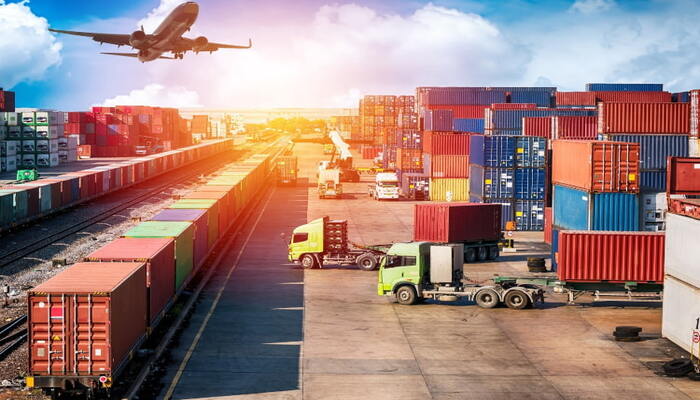Investment in the transport sector is a game changer for any economy, and South Africa is no exception. With its growing demand for efficient and sustainable mobility, the country is ripe for opportunities in this dynamic industry.
From enhancing infrastructure to adopting green technologies, there’s immense potential for investors looking to make a significant impact. The need for modernized transport systems is clear, and South Africa is ready for the challenge.
If you’re curious about the exciting possibilities that investment in the transport sector can unlock, read on to discover how you can get involved and help shape the future of mobility in South Africa.
The Current State of Transport in South Africa
South Africa boasts a well-established transport network, but challenges still exist, especially in terms of accessibility, efficiency, and sustainability. The road, rail, air, and maritime networks are integral to connecting urban and rural areas, facilitating trade, and improving the overall mobility of the population.
However, the transport system faces issues such as aging infrastructure, overcrowded public transport, and traffic congestion in major cities like Johannesburg and Cape Town.
Moreover, the country is heavily reliant on road transport, which can have negative environmental impacts. Addressing these issues presents a prime opportunity for investment in the transport sector.
Opportunities in Road Transport
Road transport is the backbone of the South African economy, accounting for a significant portion of freight and passenger movement. With a large number of vehicles on the road and a sprawling road network, there is ample potential for investment in the transport sector focused on improving infrastructure, reducing congestion, and enhancing safety.
Investment in the transport of roads can include the expansion and upgrading of key highways, as well as the construction of bypasses around major cities to ease traffic flow.
Furthermore, the development of smart transportation systems, such as digital traffic management and real-time monitoring, can significantly improve the efficiency of road transport. These improvements would lead to a reduction in travel time, lower transport costs, and a decrease in environmental pollution.
Additionally, public-private partnerships (PPPs) could be a viable way to fund the development of new road infrastructure projects, especially in underserved regions. As South Africa continues to grow, there is increasing demand for transportation services, making this sector a lucrative investment opportunity.
Rail Transport: Connecting Major Hubs
Rail transport in South Africa has historically played a major role in transporting goods, especially minerals and agricultural products. However, the country’s rail infrastructure, particularly for passenger services, is in need of significant modernization. Investment in the transport sector through rail could unlock vast potential in both freight and passenger transportation.
In the freight sector, rail offers a more sustainable and cost-effective alternative to road transport. With the increasing demand for goods movement, rail can provide an environmentally friendly solution for reducing congestion on highways and lowering carbon emissions.
Improving rail freight networks, especially between industrial hubs and ports like Durban, can create opportunities for businesses to expand their reach across Africa.
On the passenger side, investment in the transport of rail services could focus on expanding high-speed trains and enhancing commuter services, particularly in metropolitan areas. Expanding the Gautrain, for example, has already demonstrated the benefits of rail in improving urban mobility.
Similar projects in other cities could significantly reduce congestion, decrease pollution, and improve public transport options.
Maritime Transport: Gateway to Africa
South Africa’s ports are some of the busiest in Africa, serving as key trade routes for goods flowing into and out of the continent. Investment in the transport sector’s maritime infrastructure can enhance South Africa’s position as the gateway to African trade.
The ports of Durban, Cape Town, and Port Elizabeth are well-established, but there is room for expansion and modernization to cater to the increasing volume of goods passing through these ports.
The growing demand for containerized cargo, bulk shipping, and the expansion of the oil and gas sectors presents numerous opportunities for investors in the maritime transport space.
Investment in the transport of maritime infrastructure includes the construction of new terminals, deepening of harbors, and the installation of automated cargo handling systems, all of which could significantly improve the efficiency of South Africa’s ports.
Additionally, the development of inland ports and better connectivity between ports and rail networks could open up trade opportunities across the continent. By enhancing the capacity and efficiency of the maritime sector, South Africa can strengthen its position as a leading African trade hub.
Air Transport: Connectivity and Economic Growth
South Africa’s air transport sector is also an essential component of its mobility network, facilitating both domestic and international travel. The country is home to several international airports, including OR Tambo International Airport in Johannesburg, Cape Town International Airport, and King Shaka International Airport in Durban.
Investment in the transport of air infrastructure can take many forms, from expanding existing airports to investing in new regional airports to improve connectivity in more remote areas. The tourism industry in South Africa heavily relies on air travel, and an investment in air transport could attract more international visitors, boosting the country’s economy.
Moreover, air cargo presents another area for investment in the transport sector. As global trade continues to grow, the demand for air freight is increasing, and South Africa’s airports are well-positioned to accommodate this growth.
By enhancing cargo terminals and logistics systems, the country can improve its role in the global supply chain, which will drive economic growth and create jobs.
Sustainable Transport Solutions
With a growing awareness of climate change and environmental degradation, there is an increasing demand for sustainable transport solutions in South Africa. Investment in the transport sector focused on sustainability can help reduce the country’s carbon footprint while providing long-term economic benefits.
Electric vehicles (EVs) are one example of a sustainable transportation option gaining traction globally, and South Africa is no exception. As the global shift towards EVs continues, there is significant opportunity for investment in the transport of EV charging infrastructure.
Setting up an extensive network of charging stations throughout the country can encourage the adoption of EVs and reduce South Africa’s reliance on fossil fuels.
Moreover, public transport systems such as electric buses or trams can help reduce emissions in urban areas, providing a cleaner and more efficient alternative to traditional diesel-powered buses.
Investment in the transport of green infrastructure is not only crucial for sustainability but also aligns with global trends that can attract international funding and partnerships.
Conclusion
The future of transport in South Africa presents exciting opportunities for both local and international investors. Investment in the transport sector, across roads, rail, maritime, and air transport, can unlock significant economic potential, improve mobility, and create job opportunities for millions of South Africans.
The key to success lies in addressing the existing challenges while also embracing innovative and sustainable solutions.
With the right mix of public-private partnerships, technological advancements, and sustainable practices, South Africa can position itself as a leader in the African transport sector, driving economic growth and enhancing mobility for its people. Now is the perfect time to explore the myriad of opportunities available in the country’s transport sector and invest in its future.





